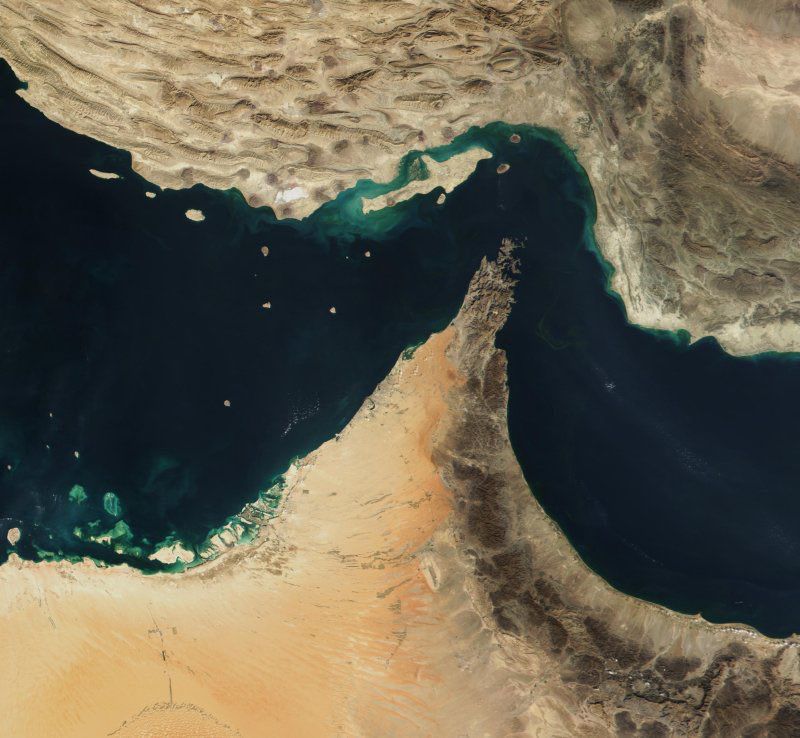How the Iran War and Strait of Hormuz Closure Could Affect Kenya and East Africa

The escalating conflict between Iran and Israel, and the potential closure of the Strait of Hormuz, poses a severe threat to Kenya and East Africa. This strategic waterway is the world’s most important oil transit chokepoint, with about 20% of global oil and a significant share of liquefied natural gas passing through daily. For East Africa, and Kenya in particular, nearly all fuel imports rely on this route.
Immediate Economic Impacts
Fuel Price Surge and Inflation
• The closure of the Strait would instantly disrupt oil supplies, causing global oil prices to spike—potentially exceeding $100 per barrel. Kenya has already seen a 25% rise in fuel prices in recent weeks due to regional tensions, and experts warn of further increases of 5-7% within weeks if the conflict escalates.
• Higher fuel prices will directly raise transportation, shipping, and airfare costs. This will cascade into the prices of virtually all goods and services, from food to manufactured products, driving inflation and squeezing household budgets.
Supply Chain Disruptions and Shortages
• Kenya and East Africa have no practical alternative to the Strait of Hormuz for oil imports. Rerouting via the Cape of Good Hope would mean longer delivery times and higher shipping costs, worsening shortages and price increases.
• Fuel rationing and shortages, especially of diesel and kerosene, have already begun to appear in Kenya, and could intensify if the situation persists.
Broader Economic and Social Effects
Trade and Export Challenges
• Iran is a significant trading partner for Kenya, especially for tea and livestock exports. The conflict may disrupt ongoing trade talks and reduce demand for Kenyan products, affecting farmers and exporters.
• The tourism sector, already vulnerable, faces further risks from higher travel costs and potential regional instability.
Inflation and Economic Slowdown
• Rising energy costs will feed into higher production costs for food, clothing, and chemicals, impacting both businesses and consumers.
• Central banks, including Kenya’s, may have limited tools to contain inflation, risking slower economic growth and potential recession.
Geopolitical and Security Concerns
• Kenya’s strategic position means it must carefully balance relations with both Western and Islamic countries. The war increases the risk of diplomatic fallout, potential terrorism, and instability, especially given regional dynamics with Somalia and the Middle East.
• Public sentiment in Kenya is divided, with some supporting Palestine and others backing Israel, potentially complicating domestic politics and foreign policy.
What to Expect if the Crisis Persists
• Short-term: Expect sharp increases in fuel and commodity prices, rationing, and possible panic buying.
• Medium-term: Prolonged closure could lead to widespread shortages, business disruptions, and greater economic hardship.
• Long-term: The region may seek alternative energy sources or suppliers, but these solutions would take time and investment.
“The closure of the Strait of Hormuz will inevitably lead to a rise in the price of a barrel of oil to over $100… Oil is a strategic and vital commodity, and when its price rises, inflation will rise with it because it is involved in 95 percent of other goods.”
Conclusion
A closure of the Strait of Hormuz due to the Iran war would trigger a major fuel crisis in Kenya and East Africa, with surging prices, shortages, and broad economic and social consequences. The region’s heavy dependence on this route for energy imports leaves it highly vulnerable to Middle East instability, underscoring the urgent need for contingency planning and diversification of energy sources






